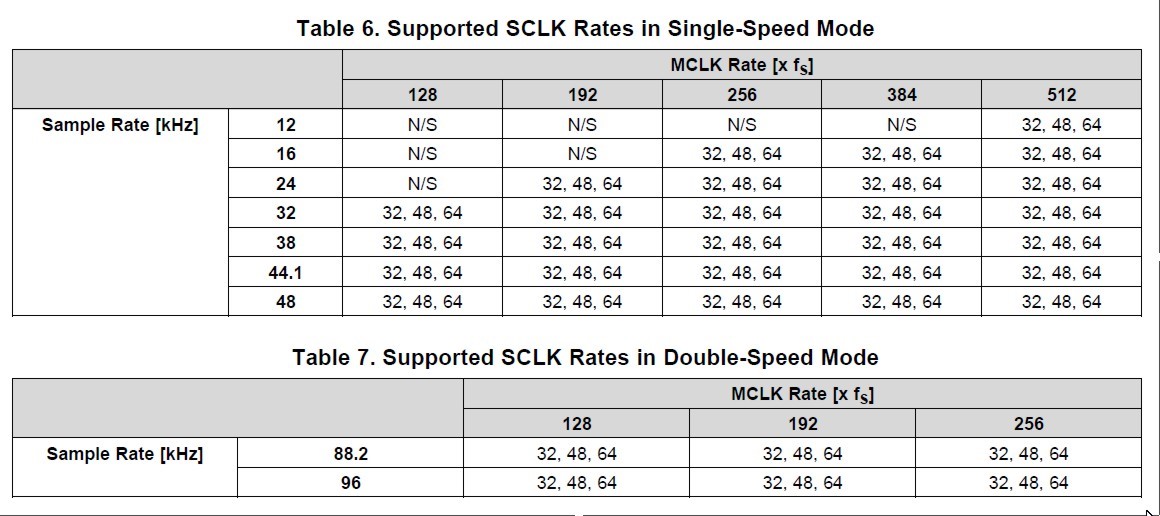Other Parts Discussed in Thread: TAS5760M, , TAS5766M, CC2642R, CC1312R
Hello.
I am expanding a custom CC1310 project that now needs the capability of producing sound. For this task I selected the TI TAS5760M because it meets my basic requirements: I2S interface for 44.1kHz 16bits mono audio and 40W in continuous mono operation with a 4 ohms speaker. I bought a TAS5760xx EVM and a PurePath Console Motherboard (PPCMB) to test it with the CC1310 LaunchPad.
After reading more carefully the CC1310 I2S driver interface documentation and the TAS5760M datasheet I noticed one possible problem related to the MCLK needed by the amplifier and the one supplied by the CC1310.
The CC1310 driver has the MCLKDivider parameter where the MCLK is set. The documentation says: "Select the frequency divider for MCLK signal. Final value of MCLK is 48MHz/MCLKDivider. Value must be selected between 2 and 1024."
The TAS5760M clocks rate table is the following:
So there is no way to set a MCLKDivider to set the MCLK into a correct value for a 44.1kHz audio. Actually, no other audio frequency can get a correct MCLK value with the CC1310 driver.
I supposed that two I2S capable devices were enough to work with each other, but after discovering this and after reading some related posts in the forums I realized that this is not true. CC1310 clock frequency is not a valid multiple for generating I2S MCLK for audio devices. I have read about it as a non-audio related clock.
Could you please answer next questions?
1. Am I wrong and I can really use CC1310 with TAS5760M directly using the I2S interface? How can I get the needed MCLK value?
2. If not directly, is there any "easy" way to get them work together? Adding a PLL to the system to generate the needed MCLK? Any TI IC solution?
3. I have discovered the TAS5766M. I don't need any of the PurePath characteristics and it has a little bit less power than the TAS5760M, but it has the possibility of a 3-wire I2S operation mode that I think is compatible with the CC1310 I2S interface as in this mode the TAS5766M doesn't need the MCLK (SCLK in this device) and only needs WCLK (LRCLK) and SCLK (BCLK) clocks, as it includes an internal PLL for generating the MCLK. Could you confirm that I can use TAS5766M directly with CC1310 I2S driver?
Regards,
Juan Pablo Novo


